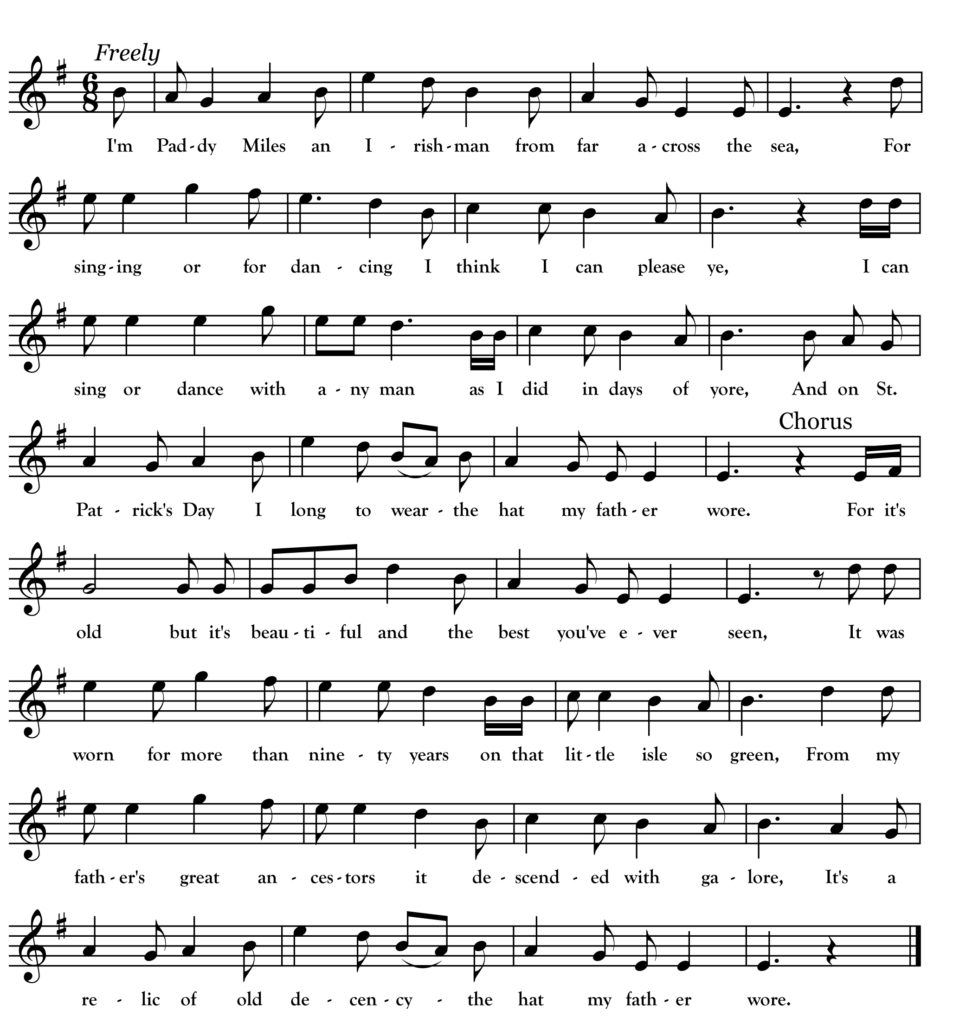Young Matt Ilan

There was a lord, lived in the north,
He had one fair and comely daughter,
She fell in love with a young man,
He was a servant to her father.
But when the old man came to know,
He swore that he would quit that island,
The lady cries, “My heart will break,
If I must part with young Matt Ilan.”
One night he discussed his lady fair,
All in her silent, lonely chamber,
Saying, “Matt Ilan I’ll transport,
I fear my child she stands in danger.”
His daughter she in ambush lay,
Oppressed with grief, she went off smiling,
Saying, “My father I’ll deceive,
I will protect my young Matt Ilan.”
Then to his room straightway she went,
Desiring him for to awaken,
Saying, “Rise, my love, and go your way,
Or else I fear you will be taken.
This night I heard my father say,
In spite of fate he would transport you,
So go your way before it is day,
You know, my love, that I do adore you.”
She sat her down on his bedside,
For about the space of half an hour,
And every word her true love spoke,
The tears down from her eyes did pour.
Her arms about his neck she threw,
His arms about her waist he twined them,
“No lord nor duke will e’er I wed,
My heart will go with you, Matt Ilan.”
“And must I go away?” he said,
“Just like some poor, forlorn ranger,
And leave my service in distress,
And must I go without my wages?”
“Oh, here are fifty pounds,” she says,
“’Tis more than all my father owed you,
So now away before it is day,
And I wish, my love, I had gone before you.”
Then after this came many an earl,
And many a lord to court this lady,
‘Twas all in vain, it was all no use,
No lord nor earl could gain her favor.
Her father asked the reason why,
At which his daughter plainly told him,
“No lord nor earl will e’er I wed,
My heart has gone with young Matt Ilan.”
Oh, then up speaks her father dear,
“I did not know how dear you loved him,
Now, I will bring young Ilan home,
Since none there are you adore above him.”
A letter then she wrote straightway,
Her heart to him it was inclining,
So, to church away without delay,
And she made a lord of young Matt Ilan.
This month we have a beautiful, unique version from Maine of a song that is well-known in Irish music circles thanks to its popularization in the 1970s. The great Ulster musician, co-founder of The Boys of the Lough and song collector Robin Morton published “Matt Hyland” in his 1970 book Folksongs Sung in Ulster. (Morton, sadly, passed away last month.) Morton’s source was Sandy McConnell, the father of his soon-to-be bandmate, Fermanagh musician Cathal McConnell. Sandy got it from another Fermanagh singer, Tommy McDermott. Morton observed that the song seemed to only be found in tradition in south Ulster.
As has often been the case in my research, the north woods of North America turn out to have been a place where Ulster songs migrated and survived. Carrie Grover sang the above version for collector Sydney Robertson-Cowell in 1941. Grover, born in Nova Scotia and based for most of her life in Maine, wrote in her book A Heritage of Songs “I have never heard anyone but my father sing this song, and he said he never heard anyone sing it but the man from whom he learned it. It is so long ago that I can’t be sure, but I think the singer was a man from New Brunswick whose name was Davidson.”
The source for my transcription was the audio recording of Grover made available online through the wonderful work of Julie Mainstone Savas on her Carrie Grover Project site (carriegroverproject.com). I recommend listening to the recording for Grover’s effective use of a sort of “in between” pitch at the peak of the opening phrase.


